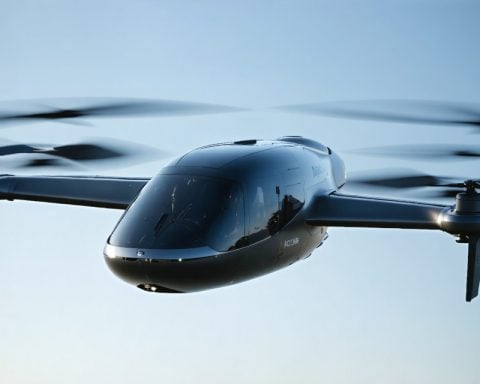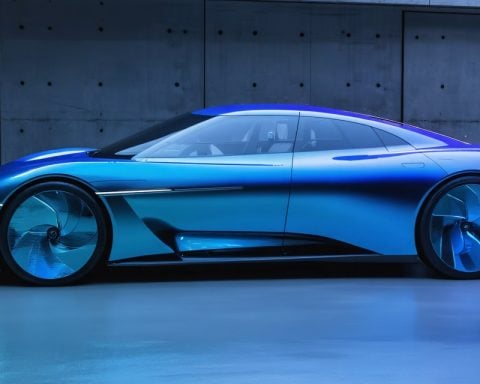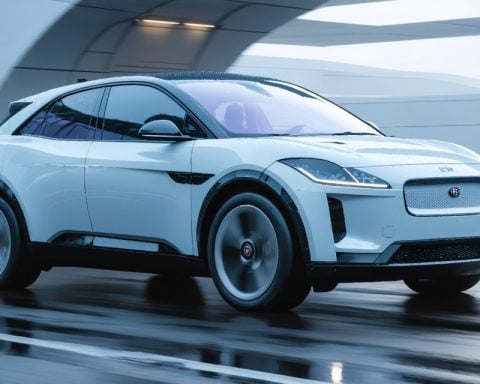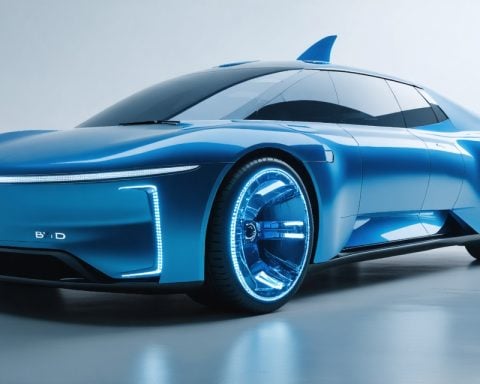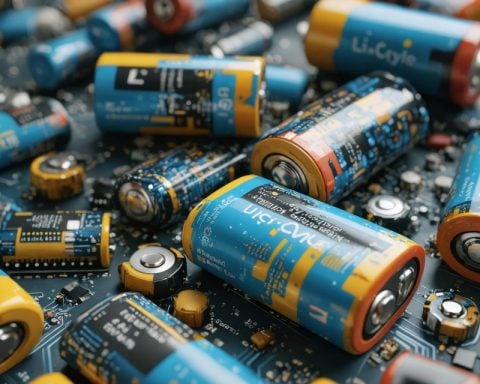- Ford is redefining the off-road vehicle market with a focus on high-performance, adventure-ready vehicles.
- The Ranger Raptor and Tremor exemplify Ford’s dedication to engineering excellence and thrilling performance.
- Electrification is at the forefront with the Mustang Mach-E Rally, appealing to eco-conscious adventurers.
- The Ford Bronco continues to innovate in its rivalry with the Jeep Wrangler, enhancing consumer choices.
- Motorsport insights are integrated into vehicle development, pushing the boundaries of performance.
- Ford’s future plans hint at potential high-performance variants and innovative models like a Mustang Baja.
- Emphasis on electrification aligns with environmental goals while offering versatile designs for diverse terrains.
Ford is charting an exciting path in the off-road vehicle market with ambitions that go beyond the ordinary, under the leadership of CEO Jim Farley. Determined to emerge as the powerhouse equivalent to “the Porsche of off-road,” Ford is crafting a legacy of adventure-ready, high-performance vehicles that captivate imagination and redefine rugged terrains.
Revamping the Lineup: Leading the charge is the formidable second-generation Ranger Raptor, already carving its place as a beacon of engineering excellence. Not to be outdone, the Tremor stands poised to take on stalwarts like the Toyota Hilux GR Sport, showcasing Ford’s commitment to robust, exhilarating performance.
Electrifying Adventures: Ford’s leap into the future with the Mustang Mach-E Rally signals a bold move towards sustainable innovation. Marrying off-roading thrills with advanced electric performance, Ford is appealing to a new generation of eco-conscious adventurers seeking the adrenaline of electric power without compromise.
A Competitive Canvas: The legendary Bronco battles the iconic Jeep Wrangler on American soil, a rivalry that sparks continuous innovation. Ford’s approach to this competition is strategic, constantly enhancing consumer choices and offering an evolving suite of off-road options.
Motorsport Mastery: Ford isn’t just innovating for consumers; it’s applying its racing acumen to push product development boundaries. By integrating motorsport insights, the Ranger Raptor and F-150 are set to redefine performance expectations.
Future Visions: Ford’s future bristles with promise, hinting at high-performance variants and the possible advent of a Mustang Baja. Such endeavors affirm Ford’s commitment to expanding its adventurous catalog, thrilling enthusiasts at every turn.
Sustainability Meets Versatility: The upward trend toward electrification in off-road vehicles aligns with environmental goals, captivating eco-savvy drivers. Ford’s versatile designs address the demand for vehicles that transition seamlessly between cityscapes and off-road escapades.
With a relentless drive to innovate, Ford is positioned to redefine off-road driving, capturing hearts and igniting imaginations. The journey ahead promises a thrilling evolution for those daring to venture into Ford’s exhilarating off-road future.
Ford’s Off-Road Innovations: The Future of Eco-Adventure Vehicles
Ford Motor Company is making strategic strides in the off-road vehicle market, aiming to establish itself as the “Porsche of off-road.” Under the leadership of CEO Jim Farley, Ford is innovating boldly with a focus on adventure-ready and high-performance vehicles. Here’s a glimpse into some lesser-known yet crucial insights and predictions about Ford’s ambitious journey.
Key Questions About Ford’s Off-Road Adventure Vehicles
1. What are the pros and cons of Ford’s electrification in off-road vehicles?
Pros:
– Sustainability: Ford’s push toward electrification, as seen in the Mustang Mach-E Rally, supports environmental sustainability, reducing reliance on fossil fuels and emissions.
– Performance: Electric vehicles (EVs) offer instant torque, improving overall performance on rugged terrains.
– Noise Pollution: Electric motors operate quietly, reducing noise pollution and offering a more peaceful off-road experience.
Cons:
– Range Anxiety: Off-road enthusiasts may be concerned about the limited range and charging infrastructure in remote areas.
– Cost: The initial cost of electric off-road vehicles can be higher compared to traditional models, potentially deterring budget-conscious buyers.
– Weight: Battery packs add weight, which can affect the vehicle’s agility and efficiency in off-road conditions.
2. How does Ford’s strategy compare against competitors like Jeep and Toyota?
Ford has strategically positioned itself to rival iconic brands like Jeep and Toyota by enhancing performance, leveraging motorsport insights, and advancing its electrification goals:
– Innovation: With models like the Ranger Raptor and Tremor, Ford competes directly with Toyota’s Hilux GR Sport and Jeep Wrangler, utilizing state-of-the-art engineering and design.
– Diversity: Ford’s lineup offers a broad spectrum of choices that cater to varied consumer preferences, from traditional powertrains to innovative electric models.
– Predictive Strategy: Ford’s investments in high-performance and sustainable vehicle variants indicate a forward-thinking approach, potentially outpacing competitors who are slower to embrace electrification.
3. What are the innovations and trends in Ford’s future off-road vehicles?
– Electrification: The evolution of models like the Mustang Mach-E Rally and potential upcoming electric SUVs and trucks points to Ford’s commitment to leading in eco-friendly off-road options.
– Motorsport Insights: Ford’s integration of racing technology in consumer products, like in the Ranger Raptor and F-150, suggests a future of vehicles with enhanced performance and reliability.
– Customization and Versatility: Anticipate more flexibility in Ford’s vehicle designs, allowing owners to easily adapt their vehicles for both city driving and off-road adventures.
Related Resources
For more information on Ford’s latest endeavors in the automotive industry, you can visit Ford’s official website.







